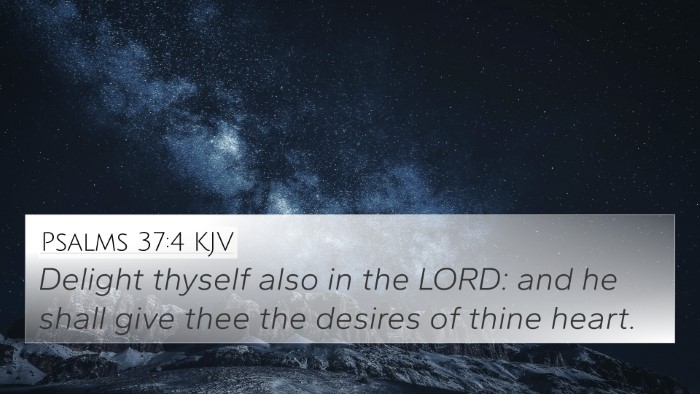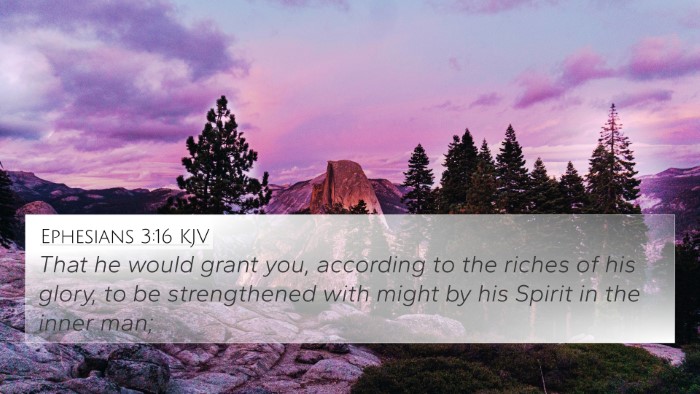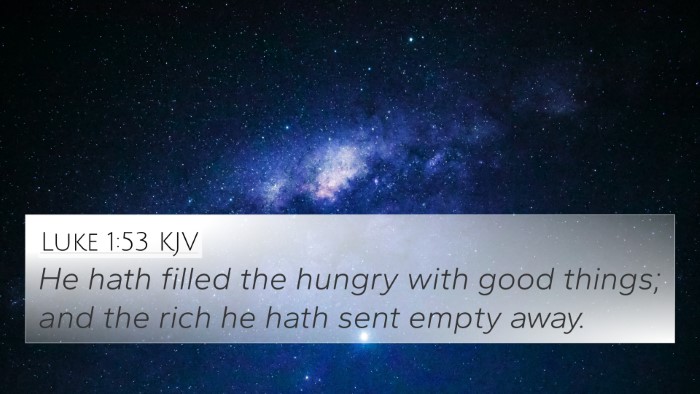Understanding Psalms 145:19
Psalms 145:19 states: "He fulfills the desire of those who fear him; he hears their cry and saves them." This verse reflects a profound assurance of God's attentiveness and benevolence toward those who revere Him. The verse suggests that God is not only aware of the wants of the faithful but that He actively engages with them. Below are insights derived from public domain commentaries.
Key Themes of Psalms 145:19
- Divine Providence: The verse emphasizes God's provision for the desires of those who fear Him, indicating a personal relationship between God and the believer.
- God's Listening Ear: It highlights God's readiness to listen and respond to the cries of His people, reinforcing the theme of prayer and divine responsiveness.
- Salvation and Deliverance: The promise of salvation for those who cry out signifies God's role as a rescuer, essential for understanding the nature of God in the Psalms.
Commentary Insights
Matthew Henry: Matthew Henry notes that the "desires" mentioned are not merely physical or material longings but rather spiritual aspirations. The "fear" of God implies a healthy reverence and obedience that aligns one's desires with God's will. Therefore, those who seek God earnestly will have their righteous desires met.
Albert Barnes: Albert Barnes elaborates on the phrase "he hears their cry," interpreting it as an affirmation of God's omniscience and mercy. He connects this with the notion that God is intimately aware of His followers’ trials and tribulations, emphasizing that their cries do not go unheard. His assurance to save them when they cry out showcases His constant readiness to deliver them from distress.
Adam Clarke: Adam Clarke contemplates the spiritual meaning of desires, suggesting that true believers yearn for a deeper relationship with God. Clarke posits that the fulfillment of these desires points toward spiritual enrichment and sustenance, not merely physical relief, illustrating a deeper longing for communion with the Divine.
Cross-References to Psalms 145:19
- Psalm 37:4: "Delight yourself in the Lord, and he will give you the desires of your heart." This verse complements the theme of God fulfilling desires.
- Matthew 7:7: "Ask, and it will be given to you; seek, and you will find; knock, and it will be opened to you." Demonstrates God's willingness to respond to those who earnestly seek Him.
- 1 Peter 5:7: "Casting all your anxieties on him, because he cares for you." Reinforces God's care for those who turn to Him in their distress.
- Psalm 50:15: "And call upon me in the day of trouble; I will deliver you, and you shall glorify me." Highlights God's promise of deliverance for those who cry out.
- John 14:13-14: "And whatever you ask in my name, this I will do, that the Father may be glorified in the Son." Signifies the power of prayer and its alignment with God's will.
- Psalm 91:15: "When he calls to me, I will answer him; I will be with him in trouble; I will rescue him and honor him." A direct declaration of God's promise to respond to His faithful.
- Isaiah 65:24: "Before they call I will answer; while they are yet speaking I will hear." Emphasizes God's proactive listening to His people.
Exploring Connections Between Bible Verses
The interconnectedness of scripture provides enriching insights when exploring cross-references. Psalms 145:19 serves as a focal point for understanding God's relationship with His followers and can be illuminated by verses across both the Old and New Testaments.
The connections emanate from the themes of divine providence, the importance of prayer, and the promise of salvation. Engaging with these scriptures in a comparative Bible verse analysis allows readers to appreciate how the same Divine truths resonate throughout biblical texts.
Tools for Bible Cross-Referencing
Utilizing tools for Bible cross-referencing can greatly enhance one's study. A Bible concordance is essential for identifying key terms and themes across different scriptures. Additionally, a Bible cross-reference guide can provide comprehensive insight into relationship dynamics between verses.
Conclusion
Psalms 145:19 encapsulates a promise of hope and deliverance for the faithful. By understanding its meaning and cross-referencing it with related scriptures, readers can deepen their comprehension of God's nature and His response to the cries of His people.


















